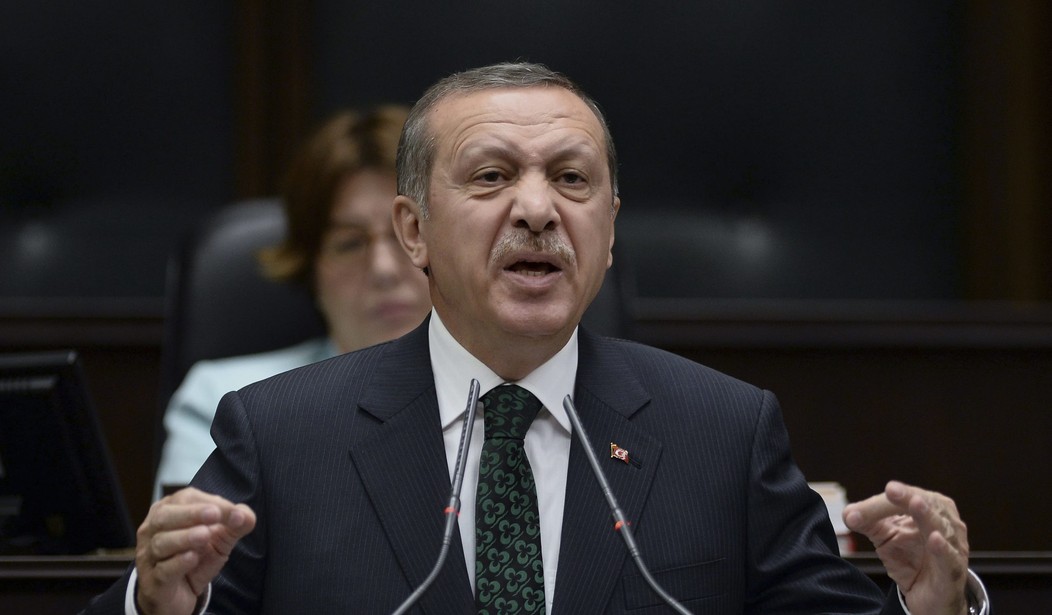The Pentagon has submitted a plan to President Trump to take the ISIS capital of Raqqa that includes a significant increase in U.S. forces, including more special forces, attack helicopters, and artillery, as well as supplying Kurdish troops with weapons.
The brass says U.S. troops will not specifically be engaged in combat operations. But the plan calls for American forces to move closer to the front lines and would delegate more decision-making authority down the military line from Washington.
As with everything having to do with the Syrian civil war, there will probably be”complications.”
But in a conflict where nothing has been as simple as anticipated, the Raqqa offensive has already sparked new alliances. In just the past two days, U.S. forces intended for the Raqqa battle have had to detour to a town in northern Syria to head off a confrontation between two American allied forces — Turkish and Syrian Kurdish fighters. There, they have found themselves effectively side by side with Russian and Syrian government forces with the same apparent objective.
On the Syrian battlefield, you can’t tell the players without a scorecard. The ever shifting alliances mean you could be fighting one group today and be allied with them tomorrow.
Approval of the Raqqa plan would effectively shut the door on Turkey’s demands that Syrian Kurds, considered terrorists by Ankara, be denied U.S. equipment and kept out of the upcoming offensive. Turkish President Recep Tayyip Erdogan has said that arming and including the Kurdish People’s Protection Units, or YPG, in the operation is unacceptable and has vowed to move his own troops and Turkish-allied Syrian rebel forces toward Raqqa.
U.S. officials, some of whom spoke on the condition of anonymity about the still-secret planning, believe Erdogan’s tough talk is motivated primarily by domestic politics, specifically a desire to bolster prospects for an April 16 nationwide referendum that would transform Turkey’s governing system to give more power to the presidency.
Those are comforting words, but does Erdogan really need a military success to finish his takeover of the Turkish state? He has purged hundreds of thousands of his enemies, leaving political, social, and cultural institutions in Syria firmly under his thumb. As likely is the simple matter that Erdogan hates the Kurds with a passion and fears their consolidation.
The potential for a clash between NATO ally Turkey’s forces and U.S.-backed Kurdish rebels is real. The U.S. is working to head off that possibility, but we’re caught between our promises of support to the Kurds and our obligations to Turkey as a NATO ally.
The current potential flashpoint is a small village near the Turkish border called Manbij. It is here that the Kurdish, U.S., and Turkish forces might end up in a confused confrontation with everyone shooting at one another:
U.S. talks with Turkey, a NATO ally and coalition member, are ongoing. But events over the past several days in and around the town of Manbij have injected a new element in the conflict that could either help the Americans avoid a direct clash with Ankara, or set the many forces now converging on the town on the path toward a new confrontation.
Manbij, located near the Turkish border about 85 miles northwest of Raqqa, was captured by the Islamic State three years ago and retaken last August by the YPG, backed by U.S. airstrikes and advisers. The town now forms the western edge of a militant-cleared border strip extending to neighboring Iraq.
The United States had promised the Turks that Kurdish control would not extend to the west beyond the nearby Euphrates River, and Manbij was turned over to the Manbij Military Council, Arab fighters within the SDF. Kurdish police are in charge of local security, but the Americans have insisted that YPG fighters have largely left the scene.
Turkey disagrees and has long threatened to forcibly eject the Kurds, who it says are affiliated with the Kurdistan Workers’ Party, or PKK, a designated terrorist organization in both Turkey and the United States that is waging an insurgency inside Turkey for greater autonomy.
Just whom would the U.S. be retaking Raqqa for? Certainly not for the Kurds. Erdogan would go ballistic if that were the case. And Turkey doesn’t want any Syrian territory.
In fact, our forces would be fighting for President Assad and Hezbollah. The dictator who has ruthlessly gassed his own people and bombed and shelled civilian areas, killing hundreds of thousands, will be the biggest beneficiary of a Raqqa takeover and become a de facto American ally in the process.
Told you it was complicated.










Join the conversation as a VIP Member